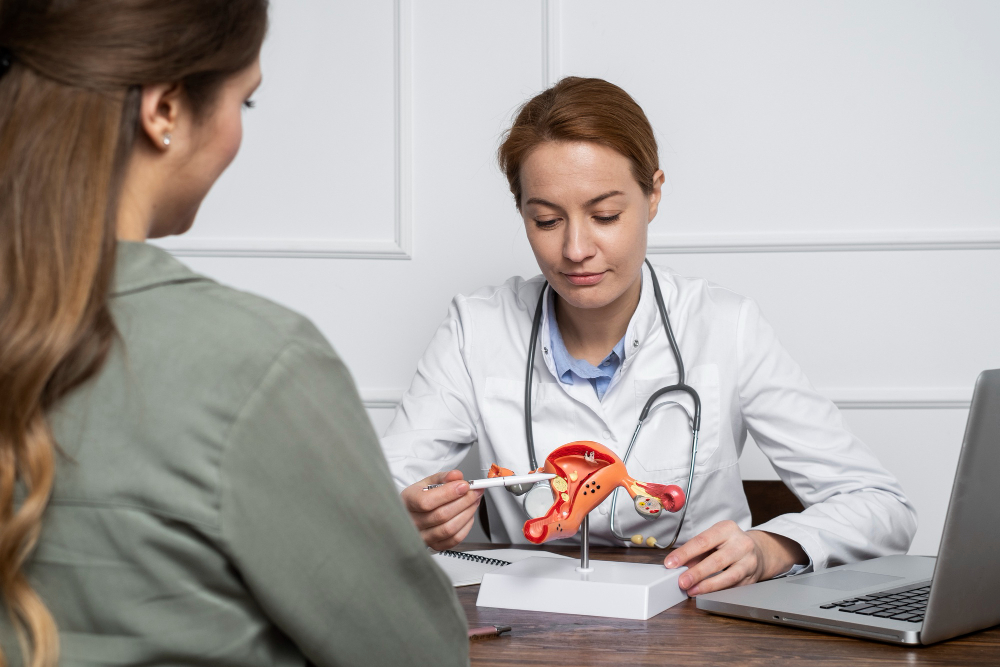Adenomyosis might sound like a big word, but it’s actually a common condition that affects the uterus, especially in women over 30.
Picture this: the lining of the womb starts growing into the muscle wall of the uterus. This can lead to some uncomfortable symptoms, but the good news is, there are ways to manage it.

What are the Symptoms?
If you have adenomyosis, you might notice:
- Painful periods
- Heavy bleeding during your period
- Pelvic pain (lower tummy pain)
- Bloating or feeling heavy in your tummy
- Pain during sex
Some lucky folks might not have any symptoms at all!
What to Do if You’re Concerned?
If you’re experiencing any of these symptoms, it’s essential to see a doctor. They can help figure out what’s going on. Here’s what might happen at your appointment:
- The doctor might ask about your periods and do a physical exam.
- You might need further tests like an ultrasound or MRI to confirm the diagnosis.
Treatment Options
The good news is there are treatments available to help manage adenomyosis symptoms:
- Hormonal treatments like the IUS (hormonal coil) or other types of contraception can help lighten periods.
- Medications like painkillers or tranexamic acid can ease pain and bleeding.
- In severe cases, surgery like a hysterectomy might be considered.
Tips for Managing Symptoms
In addition to medical treatments, there are things you can do at home to ease symptoms:
- Use a heat pad or hot water bottle on your tummy for pain relief.
- Try a TENS machine, which uses gentle electrical impulses to reduce pain.
- Take over-the-counter painkillers like paracetamol or ibuprofen.
Who’s at Risk?
While the exact cause of adenomyosis isn’t clear, it’s more common in women over 30 who have had children.
Adenomyosis might be a bit of a nuisance, but it’s manageable with the right treatment and support. If you’re experiencing symptoms, don’t hesitate to reach out to your doctor for help and guidance. Remember, you’re not alone, and there are solutions out there to help you feel better.
References :
All the other women’s health non-pregnancy topics you can find here : https://www.nhs.uk/womens-health/
